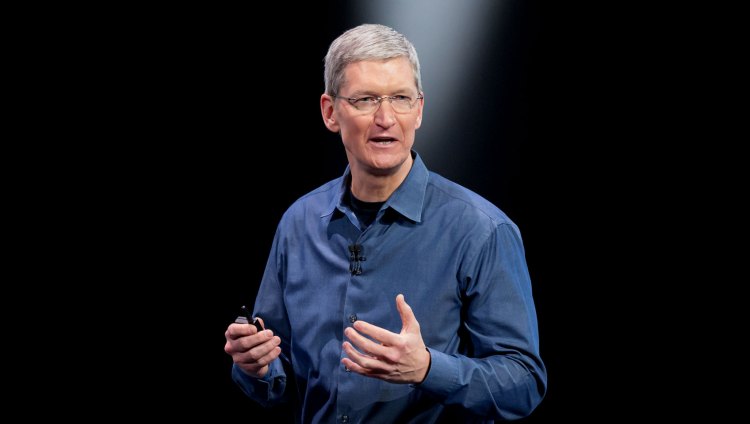There may yet be life in the laptop market. A few weeks after Microsoft launched its long-promised, fully fledged Surface Laptop, Apple is reportedly planning to refresh its Macbook lineup. Apple’s anticipated announcement followed last fall’s update of the Macbook Pro, which left many enthusiasts underwhelmed.
Apple will upgrade the Macbook Pro and the 12-inch Macbook with faster processors, Bloomberg reported, citing unnamed sources. In particular, the Macbook Pro will get a quad core processor using Intel’s Kaby Lake architecture, which wasn’t available when the Macbook Pro relaunched last October. In addition, Apple is said to be considering a faster chip for the 13-inch Macbook Air. The new laptops will be announced at Apple’s developer conference next month, according to Bloomberg.
The competing offerings from the longtime personal-computing rivals suggest a brighter future for laptops than was on the horizon even a few months ago. The new Macbook Pro received mixed reviews upon its announcement, with some enthusiasts — especially professionals who relied on its processing power — feeling that it fell short of their expectations. Instead of a new Touch Bar that seemed nice if not necessary, they wanted the speed and power Macbooks have always offered.
And rather than delivering the fancy upgrade that Macbook Pro users had waited 524 days for, Apple had signaled that it may be moving away from laptops in a personal-computing landscape where smaller devices were dominant, at least in terms of sales. Reports inside Apple seemed to indicate that Apple was focusing its innovative talent on other areas.
June 5th: The AI Audit in NYC
Join us next week in NYC to engage with top executive leaders, delving into strategies for auditing AI models to ensure fairness, optimal performance, and ethical compliance across diverse organizations. Secure your attendance for this exclusive invite-only event.
The new Macbooks certainly have revived growth in Apple’s Mac division, but nothing like the glory days. The new Macbook Pros began selling in the latter part of the fourth quarter of 2016. Overall Mac unit sales, which also include desktops, rose one percent to 5.4 million for the quarter while Mac revenue rose seven percent. In the most recent quarter, unit sales rose four percent to 4.2 million while revenue rose 14 percent.
Macbooks and Mac desktops have long had a outsize role for Apple. Together, they make up only 11 percent of Apple’s revenue, but inside any Apple store they take up a much larger portion of its floorspace. The same could be said of Apple’s brand: The Mac stands at the center of Apple’s storied history, especially in its long battle against Microsoft, and it still holds a big part of the consumers’ mindshare.
So if Apple does refresh its Macbook lineup next month, it will be announced around the time the Surface ships on June 15. The Surface, which features Intel’s Kaby Lane processor, seemed to win more positive initial reviews than the Macbook Pro update last fall. Granted, the bar of expectations has long been higher for Apple than for Microsoft — especially considering this is Microsoft’s first laptop — but after its release the Surface began to look like a viable alternative to the Macbook.
The arrival of a Surface Laptop also underscored a change in Apple’s marketplace. Deep-pocketed giants like Microsoft and Alphabet are moving into manufacturing, if not branding, their own hardware. Apple’s lead in design and innovation remains secure. But just as Microsoft has made strides with the Surface, Google has gained momentum with its Pixel phone. Amazon is working with manufacturers to market 4K TVs that use in-house-designed software and its popular Alexa technology.
Refreshing its Macbook lineup certainly would help Apple maintain its lead over Microsoft. Even though the laptop’s glory days may be past, there’s nothing like a little competition from a well-financed competitor to return Apple’s focus to its high-end laptops. Given Apple’s history in personal computing, it would be ironic if that competition came from Microsoft.


